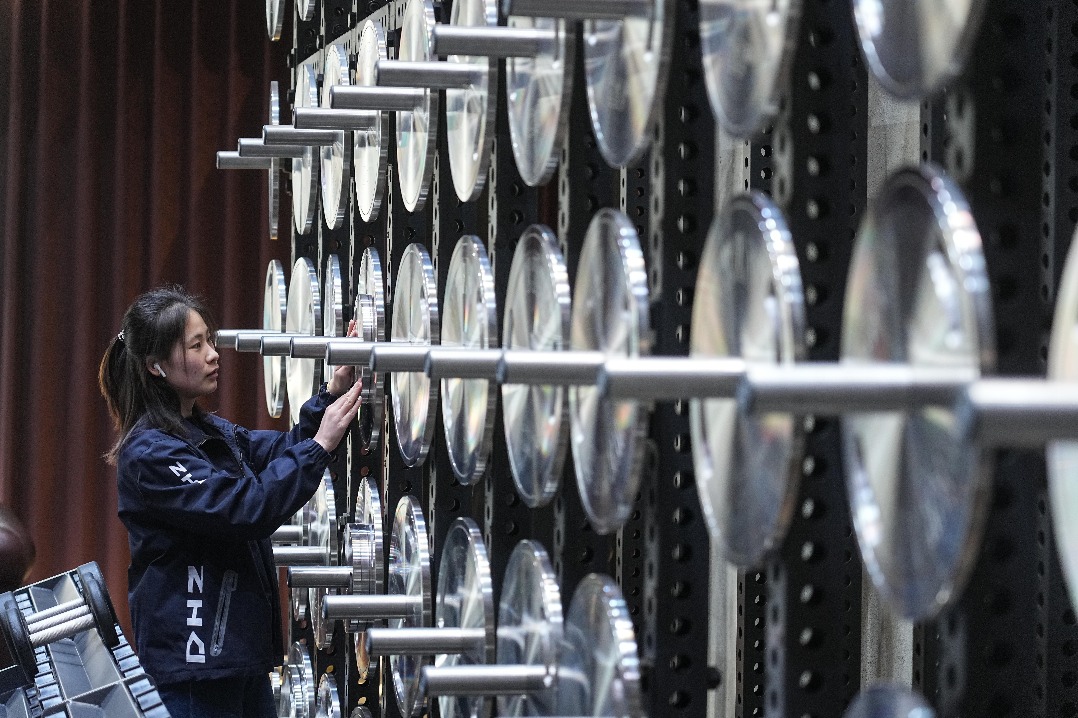Exploring 'no man's zone' of glass-making science
Skilled engineering, innovation come together to reimagine key material


When China's foldable smartphones began surviving over a million folds without cracking, the spotlight fell on flashy consumer tech. But behind these feats is something far more fundamental: glass.
At the center of this quiet revolution is Bengbu Design and Research Institute for Glass Industry Co Ltd, a core subsidiary of State-owned China National Building Material Group Co Ltd.
Nestled in Bengbu, Anhui province, the institute has emerged as China's champion in high-performance glass, which transforms one of the oldest materials into one of its most advanced.
Liu Aili, a staffer of CNBM's Bengbu Design and Research Institute for Glass Industry Co Ltd, said that the institute has successfully developed a transparent strip of glass barely thicker than a strand of hair.
"The 30-micron flexible glass developed by the institute is the only one in the world that can be mass-produced. It can be bent over a million times without breaking," said Liu. "If you folded it 100 times a day, it would last over 27 years."
Such a feat is astonishing, not only for its engineering, but as it represents a dramatic reimagining of what glass can do and how far China's material science has come, industry experts said.
In 2018, the institute produced the world's thinnest electronic touch glass at just 0.12 millimeters, thinner than a sheet of paper and capable of shattering a long-standing monopoly by foreign suppliers.
That milestone marked a turning point for the Chinese glass industry, shifting it from follower to front-runner.




































